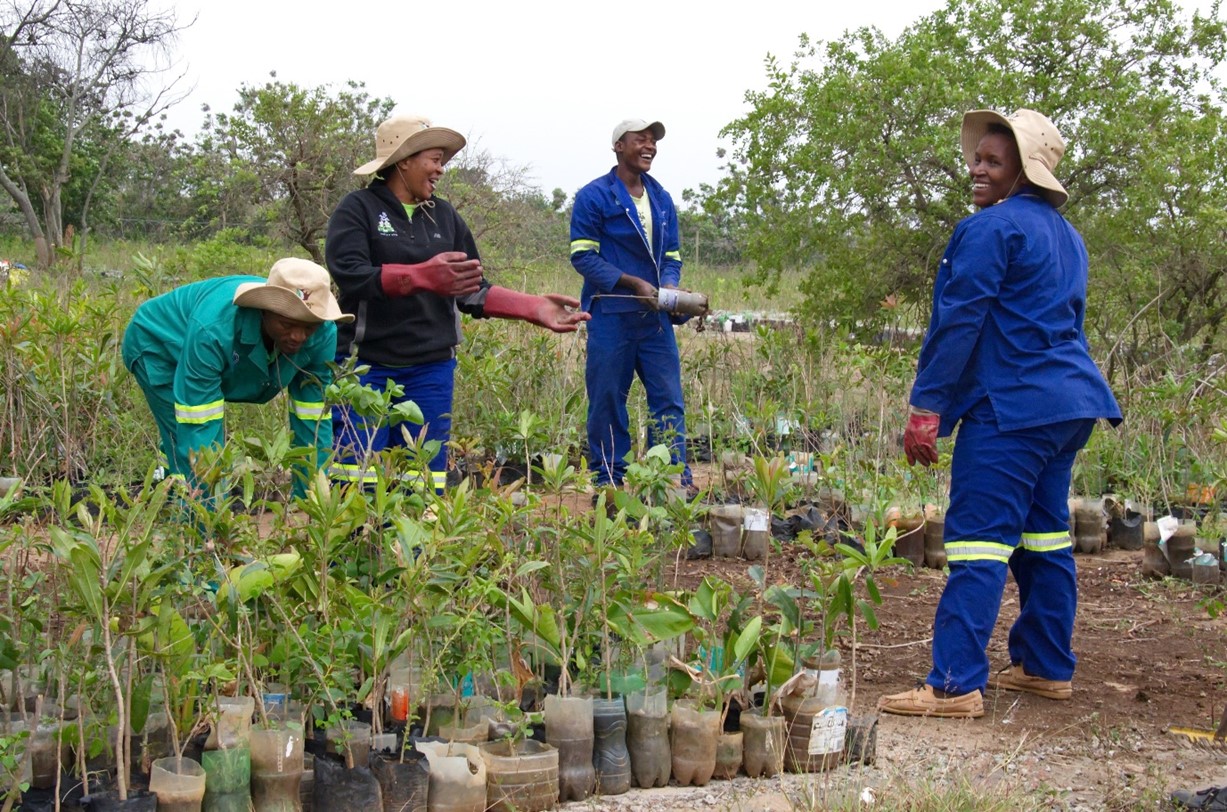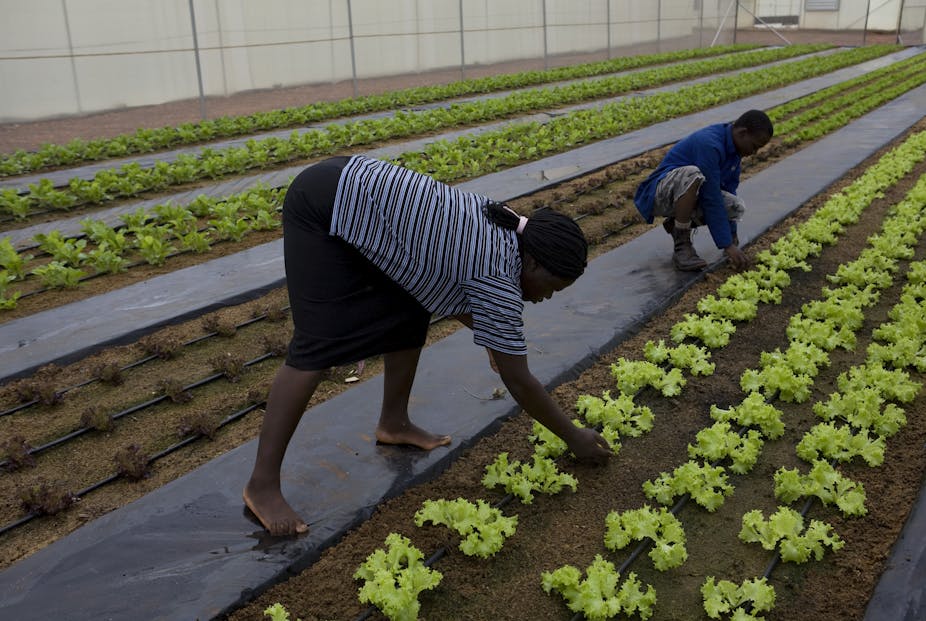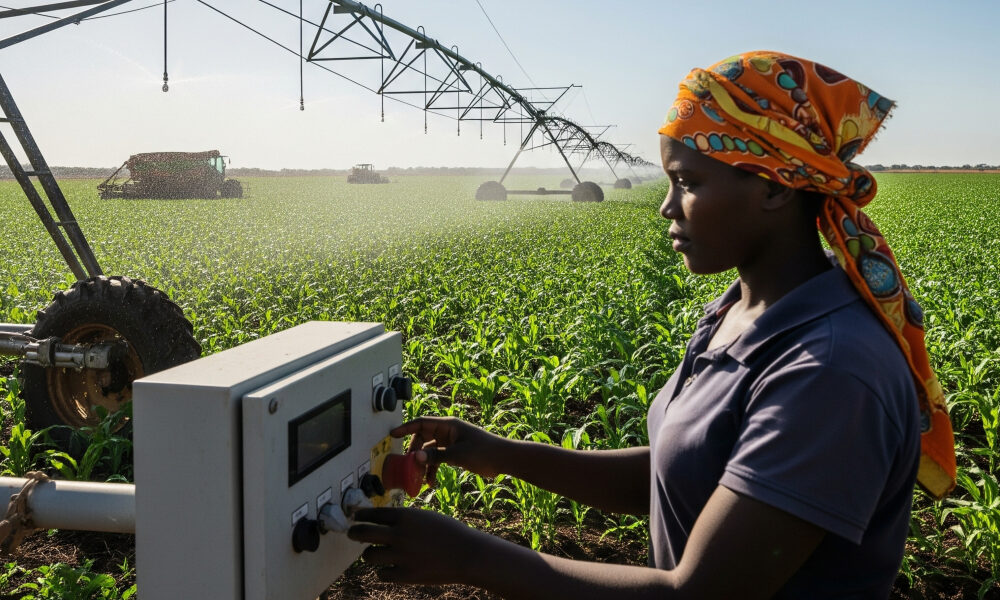In 2025, South Africa is likely to be one of the best places to do business that will last. More and more people need businesses that make money and care about the environment. Green farming, better ways to deal with trash, and the push for renewable energy are all opportunities for entrepreneurs who are ready to think ahead. South Africa puts a lot of emphasis on protecting the environment. This list of the ten best green business ideas for 2025 looks at companies that will do good for the environment and make money in the long run. There are more and more people looking for eco-friendly companies out there.
This includes recycling companies that help the country deal with its waste problems and solar energy startups that make the country less reliant on standard power sources. More people and investors want to make choices that are good for the environment. As a result, green building, technologies that save water, and organic farms are also getting more attention. There are many natural resources in South Africa, but the cost of energy is going up and climate change is making things worse. Because of these things, new green alternatives have been able to grow. With its list of the best eco-business opportunities in 2025, this book can help you learn about industries that are in high demand and make the world a better place. Green business owners, investors, and workers can use these ideas to make the most of South Africa’s growing green economy and help the world reach its sustainability goals.
Top Ten Best Green Business Ideas In South Africa 2025
10. Beekeeping and honey production

Beekeeping is a low footprint business that links food security with local livelihoods. Demand for natural honey and beeswax products is rising across urban markets and farmers markets, and consumers are looking for organic honey South Africa and raw honey from trusted local sources. Starting a small apiary can supply multiple revenue streams including table honey, filtered and creamed honey, beeswax for candles and cosmetics, and pollination services for fruit and vegetable growers.
Beyond product sales, certification as organic or chemical free creates price differentiation and attracts niche retail buyers and natural health stores. Marketing that emphasizes biodiversity, native flora and traceable sourcing supports stronger margins while building consumer trust. Training programmes and community partnerships help reduce colony losses and support rural employment. With pollination benefits that raise yields for nearby farms, beekeeping becomes an ecosystem service as well as a business model.
Operating costs are modest compared with many green ventures, and scaling can follow demand from restaurants, specialty food shops and online subscription boxes. For entrepreneurs seeking a sustainable business South Africa that links nature and income, beekeeping provides resilience and purpose.
9. Eco friendly cleaning products

A shift toward chemical free living has created room for natural cleaning brands that use plant based surfactants and biodegradable packaging. Consumers search for natural cleaning products South Africa and eco friendly household products as awareness grows about indoor air quality and environmental impact. Manufacturing can begin in a small kitchen scale setup using safe, locally sourced ingredients such as soap nuts, citrus extracts and essential oils.
Packaging choices matter, so refill stations at markets, reusable containers and compostable labelling attract conscious shoppers and reduce waste. Selling through local markets, independent retail, corporate gifting and e commerce platforms builds multiple channels while keeping customer acquisition costs reasonable. Credible product claims supported by third party testing and simple ingredient transparency win repeat business.
Education is a powerful sales tool, so running demonstrations and short workshops increases trust and creates community ambassadors. As hospitality and tourism move to greener operations, supplying lodges and guest houses with bulk refillable products opens a business to business avenue. For founders targeting eco conscious consumers, this sector blends health driven demand with practical sustainability.
8. Tree nursery and reforestation services

Planting trees is both a tangible climate action and a scalable income stream when paired with municipal and corporate contracts. Urban greening and restoration projects look for indigenous seedlings that improve biodiversity and reduce erosion, making tree nursery services increasingly sought after. Community reforestation initiatives have shown how local seed collection, seedling production and planting days can create jobs while restoring degraded land and building carbon sinks.
Selling seedlings to developers, parks departments and environmental NGOs provides steady demand, while offering consultancy for tree planting plans and aftercare services increases project value. Establishing relationships with schools and community groups can produce volunteer labour and help with environmental education, which in turn strengthens local brand recognition. Combining native species propagation with shorter term shade and fruit trees for smallholder farms widens market appeal.
There are opportunities for carbon offset programmes when projects are registered and monitored, and this opens revenue streams from corporate buyers seeking credible carbon reduction actions. For entrepreneurs who prefer a nature based business with multiple impact levers, a well run nursery and reforestation operation delivers environmental benefit and long term commercial potential.
7. Waste recycling and upcycling enterprises
Turning waste into value addresses two urgent problems at once: reducing landfill pressure and creating circular economy jobs. Demand for recycling South Africa and upcycled products has grown as consumers prefer responsible brands and retailers look for recycled content. A business can focus on collection and sorting as a community level service, then supply local processors with graded material for paper, metal and plastics. Alternatively a design led upcycling venture can convert timber, textile offcuts and salvaged metal into furniture and decor for a market that values unique, story driven products.
Pairing collection with educational programmes in schools and neighbourhoods encourages source separation and improves material quality. Logistics partnerships with municipal waste services or shopping centres can expand reach without heavy capital investment. For larger scale operations there is room for mechanical recycling and pelletising to feed manufacturers, while smaller makers can charge premium prices for artisanal pieces.
Grants and impact investors often support enterprises that reduce single use waste and create measurable employment outcomes. When combined with clear sustainability messaging and strong product photography for online sales, recycling and upcycling companies find loyal customers and growing wholesale demand.
6. Organic vegetable farming and urban agriculture

Fresh, traceable produce continues to win customers who seek health and transparency, increasing searches for organic farming South Africa and urban farming solutions. Small scale organic farms, community supported agriculture boxes and rooftop gardens meet this demand while shortening supply chains and reducing food miles. Modern approaches include container farming and vertical systems that optimise yield per square metre and perform well in constrained urban plots.
Restaurants, boutique supermarkets and subscription customers are reliable buyers when quality and consistency are delivered. Soil health practices, composting and integrated pest management maintain productivity while aligning with certification requirements that attract premium pricing. Training in post harvest handling, cold chain logistics and diversified crop planning helps reduce waste and smooth revenue.
Partnerships with chefs and food influencers amplify reach and provide storytelling hooks that convert curious buyers into repeat customers. Climate adaptive crops, water wise irrigation and rainwater harvesting lower input costs and increase resilience. For those who want a green business South Africa that is rooted in community and health, organic vegetable production offers both impact and scalable commercial options.
5. Solar energy solutions and installations
![]()
Solar energy South Africa remains a powerful entry point for sustainable business with services ranging from residential rooftop systems to commercial installations and maintenance. Even as grid stability improves in some periods, companies and homeowners continue to invest in solar for cost control and sustainability commitments. Solar installers can offer turnkey design, financing options and battery storage add ons which increase lifetime value and create recurring maintenance revenue.
There is demand for pay as you go solar for smaller enterprises and remote farms that want predictable energy costs and reduced reliance on diesel generators. Partnerships with equipment suppliers and financing institutions allow installers to scale installations while keeping upfront customer cost manageable. Training local technicians builds capacity and reduces dependence on external contractors, creating a local skills pipeline.
Service packages for energy audits and efficiency retrofits complement installations and help clients reduce their overall energy use. For entrepreneurs positioning a green energy company, clear warranties, transparent performance data and visible case studies are essential trust builders. The country wide surge in private sector renewable deployment underlines the market potential for well run solar businesses.
4. Sustainable tourism and eco lodge development

Travellers are seeking experiences that protect ecosystems while offering authentic local encounters, which makes sustainable tourism a strong green business idea South Africa. Eco lodges, community run camps and guided nature experiences that prioritise conservation and local procurement appeal to both international visitors and domestic weekend travellers. Design for low impact operation includes energy from renewable sources, water conservation measures and sourcing food from nearby farms.
Building local supply chains for crafts, guiding services and food provides direct economic benefit to host communities and enhances the authenticity of the guest experience. Marketing that highlights conservation projects, wildlife stewardship and cultural exchange resonates with travelers who want meaningful stays. Certification or membership in recognised sustainable travel bodies adds credibility and helps with distribution through quality conscious booking channels.
Seasonal programming such as birding, wildflower tours and guided conservation activities extend occupancy beyond peak months. For investors and operators who want a tourism enterprise that aligns profit with purpose, a small scale eco lodge with strong community links offers a compelling pathway to impact and revenue.
3. Agritech and smart farming solutions

The efficiency gains from digital tools make agritech one of the fastest growing green business ideas in South Africa. Precision farming, soil sensing, remote crop monitoring and smart irrigation systems help farmers reduce water and fertilizer use while increasing yields. Software as a service platforms and simple mobile apps that match input supply and market demand fill gaps for smallholder producers who need access to data and buyers.
Drone surveys, satellite imagery and local IoT sensors can be packaged into subscription services that scale across regions and crop types. Providing training and dedicated agronomy support helps clients adopt new tools and ensures technology transfers into better farm practices. By increasing productivity per hectare and lowering resource intensity, agritech contributes directly to sustainable agriculture goals and helps producers weather climate variability.
Collaboration with research institutions and pilot projects builds proof of concept and accelerates adoption across commercial and small scale farms. For technology founders, combining strong user experience with real world agronomic expertise creates sticky products and long term revenue from implementation and data services.
2. Waste to energy and biogas projects

Turning organic waste into heat and electricity offers both climate benefits and reliable energy for industry. Biogas projects that digest agricultural and food waste produce methane that can be used for on site power generation or upgraded to pipeline quality gas. South African projects have proven the model at commercial scale and corporate offtake agreements provide bankable revenue streams.
Organic waste to energy reduces methane emissions from landfills and creates a circular system where farm waste becomes fuel and digestate becomes soil conditioner. Although capital requirements are higher than for small scale ventures, attractive returns come from energy sales, reduced waste disposal costs and potential carbon finance revenues.
Developers can partner with large food producers, dairies and municipalities to secure feedstock and establish long term power purchase arrangements. Technology choices range from small modular digesters for single farms to centralized plants that serve clusters of businesses. For entrepreneurs focused on industrial scale sustainability, waste to energy and biogas projects combine environmental outcomes with strong industrial demand.
1. Renewable energy trading platform and green energy as a service

A market ready platform that lets businesses access renewable energy on a month to month basis is a transformative green business idea. New offerings in 2025 enable firms to buy verified green power through the grid without committing to long term contracts or heavy capital outlay, opening uptake to small and medium enterprises that want clean energy solutions South Africa.
Services that bundle procurement, verification and billing make switching simple and allow companies to demonstrate sustainability commitments on day one. Platforms that also provide performance dashboards and incentives for energy efficiency help customers reduce costs while meeting corporate environmental targets. Partnerships between energy companies, financial institutions and climate focused ventures accelerate product development and broaden market reach.
The rise of competitive platform models that unlock renewable access for all sizes of business points to a new era where clean energy becomes a subscription service rather than a capital project. This approach removes barriers to entry for many businesses and scales rapid decarbonisation across sectors.



https://shorturl.fm/0a16J
https://shorturl.fm/Gy59D
https://shorturl.fm/x3taC